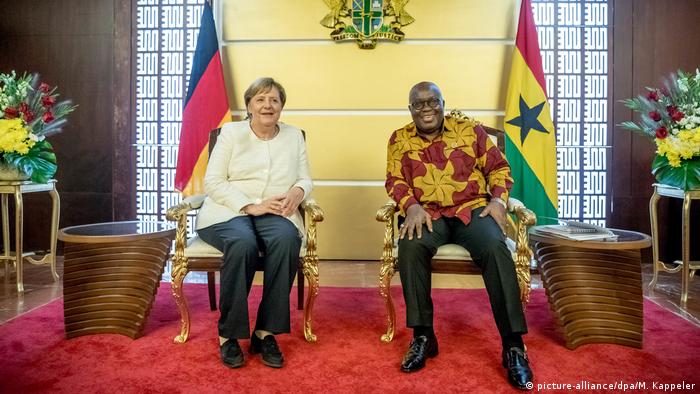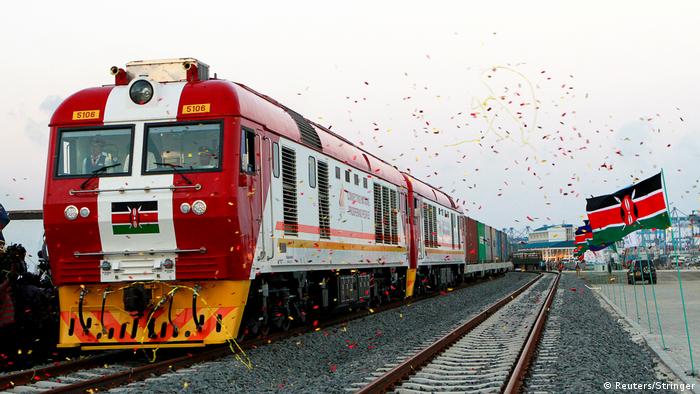The continent groans under the highest debt burden since 2001. In the nineties, many African States, threatened the Broke, now the situation is again serious. Help this time is much more difficult.

Actually, Ghana is abroad for positive headlines. Ghana, the means of peaceful change of government, a functioning democracy and a government that wants to get away from development aid. However, from abroad, Ghana is still pretty dependent, because the alleged pattern of the country is in big trouble. By the end of 2017, the national debt amounted to almost 70 per cent of the gross domestic product. The International monetary Fund (IMF) holds in the case of developing countries, 40 percent is acceptable.
However, the IMF and the world Bank is especially concerned that Ghana is a dangerous Trend in Africa. “It’s not looking good at the Moment,” said the German Executive Director at the world Bank, and Jürgen Zattler, DW. “After the debt relief and the very positive economic development in the last 15 years, the debt has increased again in recent years.”
And the dramatically. According to the British development organization, Jubilee Debt Campaign, Africa’s external debt increased last year to the highest level since 2001. 18 countries are according to world Bank figures in an acute debt crisis or are on the verge of. It is the result of a dangerous mixture: Africa’s governments need money and can get it easier than ever.

Angela Merkel visited Ghana’s President Nana Akufo-Addo. Ghana is regarded as an important Partner for Germany
Debt for roads, rails and ports
“Falling or fluctuating prices of raw materials have led to many countries taking suffered losses. The led to the holes in the house, which compensated for many governments through loans,” says Tirivangani Mutazu, an Analyst at the African debt network AFRODAD.
The other reason is that Africa desperately needs roads, rails or ports. Without infrastructure, no development and not enough Jobs for the millions of young Africans. However, for the Expansion of infrastructure-African Institute for International relations each year, approximately 93 billion U.S. dollars is missing according to the South Africa. That’s why many governments get into debt. Example Kenya: Last year, the new railway line between the port city of Mombasa and the capital, Nairobi, went into operation. The cost of the largest project since independence: Almost four billion dollars, Chinese loans funded.

The opening of the new railway line between Nairobi and Mombasa in Kenya
The Lust for cheap money
Money could find many countries in the last years. Alongside traditional donors such as Western governments or the IMF, new opportunities have appeared. Private investors are looking for in times of historic low interest rates in Europe are desperately seeking investment opportunities. In the process, they also discovered African States. “Some countries have developed positively and were able to borrow on the capital markets. They have taken out loans with much higher interest rates”, says the German world Bank representative Zattler. China also plays a role: 14 percent of all African foreign debt back to China, which will secure estimate of cheap credit, influence, and access to, of Africa floor.
All of this will make it much more difficult, in the current crisis. “In the past, had gathered, in fact, only the so-called ‘Paris Club creditors at the table,” says Zattler. The round of negotiated Debt relief for States which are its members in the Cretaceous. “This is no longer the case, because neither the private lender, the new government creditors such as China or Saudi Arabia are not sitting at this table.”

The IMF wins in Africa again, here is IMF Chief Lagarde with Nigeria’s President Buhari (left) and the Governor of the Nigerian Central Bank, Godwin Emefiele
The IMF is back in Africa
In the current crisis, are now in demand but rather traditional donor – such as the IMF. Also, Ghana is among the countries that obtain aid from Washington. Arguably not achieved: As Africa’s debt in the 90-year old record highs, prescribed IMF and world Bank “structural adjustment programmes”. State companies have been privatised in a hurry, and government spending slashed. Because also in the case of social programmes in education or health have been saved, it hit mainly the poor.
The IMF stressed, to want to this time, different approach. Experts such as Tirivangani Mutazu are still concerned: “A number of States have asked the IMF for help. The IMF will of course require austerity measures. Some of these measures do not seem to be from those in the 80s and 90s to distinguish the years and who goes to the IMF, seems to also can not escape.”

